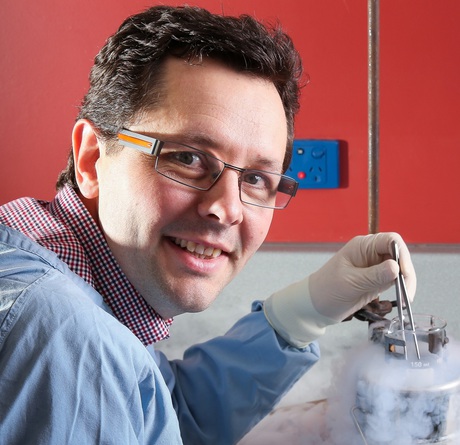Mark Hutchinson to direct Nanoscale BioPhotonics centre

The ARC Centre for Nanoscale BioPhotonics (CNBP) has announced Professor Mark Hutchinson as its director, with immediate effect. Professor Hutchinson is no stranger to the centre, having acted as its interim director since September 2014.
The CNBP is a collaborative research venture, led by the University of Adelaide (where Professor Hutchinson is currently based) with key nodes at Macquarie University and RMIT University. The $38 million centre is driving the development of light-related technologies and tools that can measure molecules and cellular processes in the highly complex and dynamic environment that is the living body.
“The technologies and tools being developed by the centre operate at the nanoscale and are literally providing us with ‘windows into the body’,” Professor Hutchinson said. He added, “Understanding the processes in the human body at the molecular level will advance our scientific knowledge immensely and will have enormous clinical impact” - particularly in the areas of cardiovascular disease, chronic pain and reproduction.
Since returning to Australia in 2009 from postdoctoral positions in the USA, Professor Hutchinson has led the Neuroimmunopharmacology research laboratory within the School of Medical Sciences at the University of Adelaide. He also leads the Biological Sensing and Medical Diagnostics theme within the university’s Institute for Photonics and Advanced Sensing and is a board member of Science & Technology Australia.
“Professor Hutchinson is well respected in the medical sciences field and will make a great contribution to the ARC Centre of Excellence for Nanoscale BioPhotonics,” said Australian Research Council CEO Professor Aidan Byrne. “He will lead his team well and ensure the research program of the centre forges ahead and makes important discoveries to the benefit of Australians.”
Mini lung organoids could help test new treatments
Scientists have developed a simple method for automated the manufacturing of lung organoids...
Clogged 'drains' in the brain an early sign of Alzheimer’s
'Drains' in the brain, responsible for clearing toxic waste in the organ, tend to get...
World's oldest known RNA extracted from woolly mammoth
The RNA sequences are understood to be the oldest ever recovered, coming from mammoth tissue...



